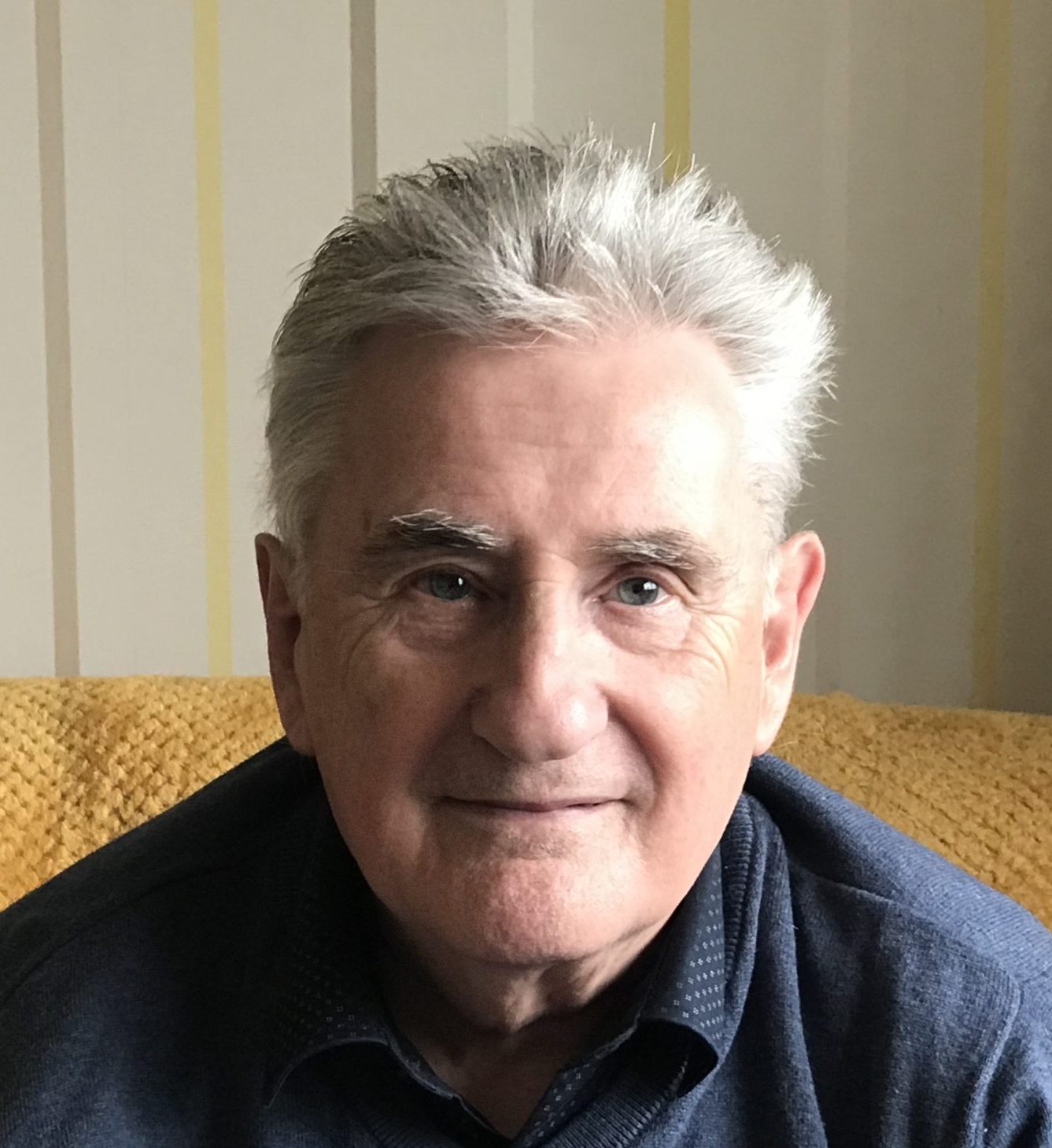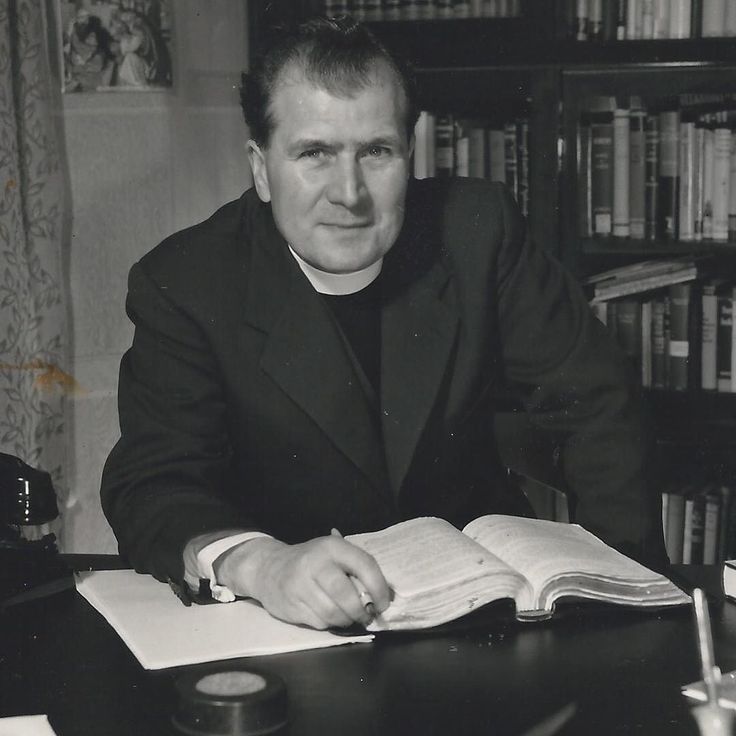Percy Brewster – ‘Elim’s Elisha’
Maldwyn Jones has published the second volume of his history of Elim which includes the stunning account of Percy S Brewster, here outlined by Heroes of the Faith editor David Littlewood

Brewster's contribution of Elim's history
is included in Maldwyn Jones's latest
book, 'And They Came to
Elim, Volume 2'
‘Elim’s greatest evangelist.’ That’s the verdict of Maldwyn Jones on the ministry of Percy S Brewster in the second volume of his history of the Elim movement. Whether that title belongs to Brewster or his great predecessor, George Jeffreys, is an arguable point. But whereas Jeffreys pioneered and planted the movement, Brewster remarkably sustained and built upon what Jeffreys had done. It is a fact that Brewster pioneered more churches than Jeffreys.
Born in 1908 in London’s East End, Percy was a member of the East Ham Elim Church. Most of his family, including his parents, had been converted under the ministry of the Welsh brothers, George and Stephen Jeffreys, whose East End campaigns during the years 1925-1927 were phenomenal. Hence, the young Percy was born into revival in those exciting times, being baptised in the Spirit at meetings in Zion College on the Embankment, London, under the ministry of Pentecostal pioneer Howard Carter.
As a young man with a distinct call to an evangelistic ministry, Percy spent three months helping out with meetings in Birmingham in 1931, following Jeffrey’s hugely successful campaign in the city the previous year. He was given special responsibility for the work at Winson Green and, following this short period of ministry, entered the Elim Bible College in September of the same year.
In those days, theological training for Pentecostals tended to be brief as they believed the Lord was coming soon. And so, after just a few months, Brewster was sent to take charge of churches at Ashbourne and Tamworth – two towns a considerable distance apart! After this, he had a three-week spell at Sheffield, where 72 responded to his preaching.
In 1934, he was appointed to Swansea. Jeffreys had held a very successful campaign there four years earlier and a strong church had been planted. It was from Swansea that Brewster launched the first of his evangelistic campaigns at Neath, where 600 people packed the hall. He followed this with meetings at Llanelli and other places during 1936, packing buildings and planting several churches.
Before the war, Elim had a policy of moving pastors on an annual basis, and Brewster had several successful pastorates before being inducted into the pastorate of the Cardiff City Temple in 1939 at the tender age of 31. Here he was to remain until 1974.
The church had been built by George Jeffreys to seat 1,000 people and the congregation Brewster inherited was around 800. Despite the difficulties which affected all aspects of life in Britain during the Second World War, Brewster continued his evangelistic work. Apart from his ministry among the members of the Armed Forces, he sought opportunities to open up new areas. This resulted in churches in Barry and Newport being pioneered as a result of his campaigns in 1942 and 1943.
In 1944, the Elim conference appointed an Evangelistic Council to spearhead evangelism in the country and chose Percy Brewster to lead it. In a very real sense, he was thus filling the leadership void left by George Jeffrey’s departure.
The late Elim evangelist George Canty said: “When George Jeffreys receded from prominence, a cry for a leader was often expressed. Nobody else could be a founding father, but Percy Brewster’s extensive pioneering of new churches thrust him forward as a possible substitute. To some degree [he was] the Elisha to George Jeffreys’ Elijah… Ultimately, his great value as a man that others would follow became evident. His appointment as Secretary General meant something of a sacrifice for him, but in that office, he exercised a powerful driving effect which touched the whole movement.”

Percy Brewster's campaigns attracted large
congregations as well as news coverage as he
prayed for the sick and planted new churches
In 1939, with the Elim movement wracked by governmental disputes due to the resignation of George Jeffreys, Brewster showed he would clearly be more than capable of filling the gap left by his illustrious predecessor with a major evangelistic campaign in Hull, where more than 2,000 people gathered to hear him. It was said, “The dynamic of the preaching and the concerned fervency of the prayer for the sick left an indelible mark for good and for God.”
By 1948, in an astonishing burst of evangelistic activity, campaigns had been held in the Welsh towns of Neath, Llanelli, Aberystwyth, Barry, Swansea and Newport, all with churches being established in these towns. Further campaigns brought more success throughout the country, with Brewster continuing campaigning until churches were planted.
For example, in post-war Camberwell, Surrey, Brewster’s campaign re-established an Elim church devastated by wartime bombing. As Canty reported: “In the spiritual Sahara of South East London, in a tent pitched on the ground cleared by Hitler’s bombs, for two months Brewster persisted against incredible public apathy until hundreds had professed Christ and the meetings were transferred to an immense old chapel.”
Brewster’s energy for evangelistic campaigning in these years is quite astonishing, especially since he was still pastoring a large church – the Cardiff City Temple – at the time. Yet, filled with true apostolic fervour, he was determined to hold as many campaigns as possible.
In 1952, he was inducted as Elim’s president for the first time and the same year hired the 2,000-seat Colston Hall in Bristol during the month of August for a campaign, in spite of the manager’s assertion that it was ‘sheer madness’ as it was the holiday period and nobody would come. However, driven by his ‘love of spiritual adventure’, Brewster took up the challenge and the Elim church in Bristol was born.
To the surprise of many, Percy Brewster was nominated for the office of Secretary General for a second time at the 1974 Elim Conference. The men who had previously occupied this office, like EJ Phillips, had been appointed largely for their administrative gifting, and Brewster’s coming to the office had something of the effect of a whirlwind on the administration.
A man of vision and abounding energy, a gifted evangelist with a particular skill for gathering converts, the man known as ‘PS’ by his contemporaries combined this with a caring pastoral ministry. Along with his illustrious predecessor, George Jeffreys, his ministry should be recognised as that of an outstanding apostolic evangelist.
Percy Brewster died in London of a brain tumour in July 1980 but was buried in Cardiff, Wales. Characteristically, he made a request, carried out at his funeral, for a gospel call to be given. The preacher on that occasion was Eldin Corsie, who took as his text Joshua 24:29, ‘Joshua died… and they buried him in the land of his inheritance.’ As Corsie commented, “He was a Londoner by birth, but Wales became the land of his inheritance.”
Adapted with grateful thanks from 'And They Came to Elim, Volume Two' by Maldwyn Jones.
This article first appeared in Direction Magazine. For further details, please click here.
Enjoy this article? Don't forget to share